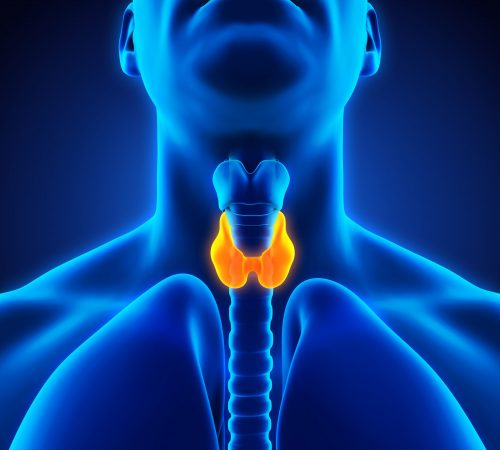“Trust Me, I’m Your TRT Doctor”

I’m currently laid on the couch with ‘Man-Flu’. Some pesky child coughed on me Friday evening in clinic and its knocked me on my butt. Today is my day off, so it’s a duvet day, with two German Shepherds laid by my side, no gym for me. It got me thinking, why the hell do I do what I do? Who in their right mind would voluntarily exposure themselves to catching illnesses from their clients apart from a doctor? Would I still do medicine if I knew then what I knew now? Do you know what? If I hadn’t found TRT, it would be a resounding NO! I think all doctors go into medicine with the best intentions, with the idea of making a tangible difference to people’s lives. It sounds like an awful cliché, but I promise you it’s sincere, well at least for me it is.
I often point depressed people who are struggling to find purpose, in the direction of Alan Watts, a brilliant philosophy who brought eastern Buddhism to the west. I’m not religious in any shape or form, but I can appreciate the simplicity of what he says and the philosophy behind it, and incorporate it into my own belief system or sense of right or wrong.
The speech is this one – “What would you like to do if money were no object?”.
The problem is, we were sold a lie. We followed our dreams, our foolish aspirations of making a positive change to humanity through becoming doctors, only to find that we were the puppet not the puppet master, and the story wasn’t the story we wanted to tell AND the crowd didn’t want to listen to the story anyway so?! I’m sure most doctors still hold dear the same ideals that they originally went into medicine with. However the weight of the world, the big creaking machine that is the NHS, the responsibilities, the pressures of modern life, mean I’m sure most of them feel trapped. There’s some consolation in the fact that it’s still a worthwhile occupation and we have an overall positive influence on society, but the story we wanted to tell was far more grand and rewarding.
“It’s great to be here. I thank you. Ah, I’ve been on the road doing comedy for ten years now, so bear with me while I plaster on a fake smile and plough through this shit one more time.” – Bill Hicks
The NHS is under EXTREME pressure from all sides, unrealistic expectations pulling the staff to breaking point. We are often working with our hands tied behind our backs, “The computer says no”. The principles behind the NHS are wonderful, but when ‘need’ is abused by both patient and government, toxic overcrowding and lack of resources mean that cracks appear. The NHS is crumbling under the strain, it’s only a matter of time before it is privatised in my opinion. When this inevitably happens, the government will want to ride in on their white horse to save the day, blame the medical profession and subsequently profit from the venture. Virgin Healthcare, give me strength!
I grew up in the generation that truly believed the health system would do right by us. It was a sort of paternalistic relationship, but it was also comforting to know that if needed, our health system would do what’s right by us as an individual. Unfortunately, the NHS is a political tool, its budgets are justified through maximum gain in the shortest time. They dish out toxic statins like smarties! That being said, I’d still chose an NHS hospital over a private one for emergency care every day of the week. UK doctors are highly skilled, but they lack the resources to do what might be considered ‘best practice’ and in this litigious society that is needing to tighten ones buckles due to austerity, progressive innovation isn’t at the forefront of the NHS agenda. It’s now about understanding that the needs of the many outweigh the needs of the individual in the modern NHS. It’s unfortunately about achieving short term goals to justify a budget, not considering the long-term health benefits of a ‘considered’ expensive treatment that is poorly understood, despite it being common sense!
This is true of testosterone replacement therapy. The cost-effectiveness is difficult to demonstrate and justify with the short-sightedness of the government at the time’s agenda. When it comes to Testosterone Deficiency Syndrome (TDS), I have to laugh, more out of embarrassment at the level of ignorance that is displayed within both the realms of GP land and that of supposed experts, Endocrinologists. In our defense, UK doctors get ZERO training in the management of TDS and I mean ZERO. I recently went to a very respectable conference that summaries the latest evidence based medicine, it’s designed for busy doctors who simply don’t have the time or inclination to read and critically analyse every piece of research ever done. I fall into both of those categories, I’m more of a people person. They said “The Male Menopause…there isn’t enough evidence to support it…next topic”.
It’s disappointing to say the least. It demonstrates an ignorance that is unbecoming of a supposed modern, progressive 21st century health service. That’s not to say that we should idly sit and accept our fate. In fact, you are here because you’ve decided to stand on your own two feet, you’ve come to the realisation that if you don’t help yourself, no one will do it for you. That’s a good thing in a lot of ways. It’s time for guys to make decisions about their health based on what is right for them, the individual.
Hopefully, projects like ours inspire men and give them the confidence necessary to take that all essential step out from under the covers. You can do it with the assurance you are being managed by a doctor who will see past the numbers, see past the symptoms and signs of testosterone deficiency and adopt a holistic approach to your care. Thanks to people like Nelson Vergel et al, we have full open access to all of the latest research and evidence as it emerges. Use this information to help educate your doctor who really does have your best interests at heart. That being said, it’s your health, so you need to do what’s best for you, you need to take responsibility and ownership. I have refined my service based on this evidence and continued experience within the field of testosterone replacement therapy. We are constantly seeking to improve the service we offer you, as well as the patient experience.
I love my job, it’s easy working with well-informed, well-motivated people. It seems men are waking up to the idea that their health is their responsibility, which can only be a good thing in my opinion. In this age of consumerism there is no place for the old doctor-patient relationship, which is sad but, as it turns out, necessary. There is an understandable lack of trust here which extends far wider than just healthcare. The recent political change here with Brexit and over the pond with the US election, remonstrates that.
With that in mind, your doctor-patient relationship shouldn’t be the same as that of a sales-person and consumer. Unfortunately, it appears to be going in that direction. Whether you accept that and actually feed the change is up to you. I didn’t go into medicine to be a sales person, I went into medicine to help provide the best care appropriate to my patient based on my knowledge and experience. My agenda is providing you with the most appropriate care based on your needs. It’s taken me 20 years of medical practice, 5 years of pre-graduate study, late nights, over-nights and more weekends lost than I care to remember, to be in the position I am in now. I’m always learning. You can’t be an expert just because you want to be an expert, you’ve read a few papers and got it sussed. I don’t begrudge the time I’ve spent studying and practicing medicine, it’s made me the clinician I am today.
‘A whole new ball game. You can’t learn about it in school, and you can’t have a late start.’ – Carlito.
I understand the frustration you guys feel approaching your doctor for help, only to be turned away or palmed off with an inferior treatment. It’s not ALL our fault, speaking for the medical profession as a whole. Doctors and nurses really are trying to do their best by you, but they simply cannot offer the gold standard service they want to under these circumstances. I don’t believe this will change any time soon, it’s now designed to fail, to pave the way for privatisation and the corporate monsters to profit from.
In my opinion, the doctor-patient relationship needs to be preserved at all costs, it just needs to evolve to ensure that trust is maintained. It might seem paradoxical that in one breath I say take responsibility for your own health, and in the next say listen to your doctor. You need to find a doctor who will understand your ideas, concerns and expectations. You need to be able to trust his or her opinion & judgement and believe that they have your best interests at heart. Like all healthy relationships, communication and trust are key to concordance and compliance to help facilitate a positive outcome. Speaking in a generality, the NHS simply cannot provide this relationship since the model is broken. Private healthcare can, certainly when it comes to testosterone deficiency syndrome. I make sure I have the time to deliver the gold standard service I hope I give to my patients.
If you don’t want to go down the private route, your NHS doctor should still be the person you first seek advice from. UK doctors, despite their lack of understanding about the HPG axis, TDS and the health benefits TRT can offer, are still very highly educated and skilled. Let them exclude other causes of your symptoms first. If the only diagnosis left is low testosterone, fight your corner with the BSSM guidelines.
If you hit a brick wall or don’t get the level of care you seek, see a DOCTOR who specialises in TRT, someone who will adopt a holistic approach to your care, someone who will monitor you not just your testosterone levels. One of the reasons I went into private medicine is because I could offer my patient the gold standard service I wanted to. You need to trust in yourself and do what’s best for you.
Dr Robert D Stevens MBChB MRCGP Dip.FIPT


